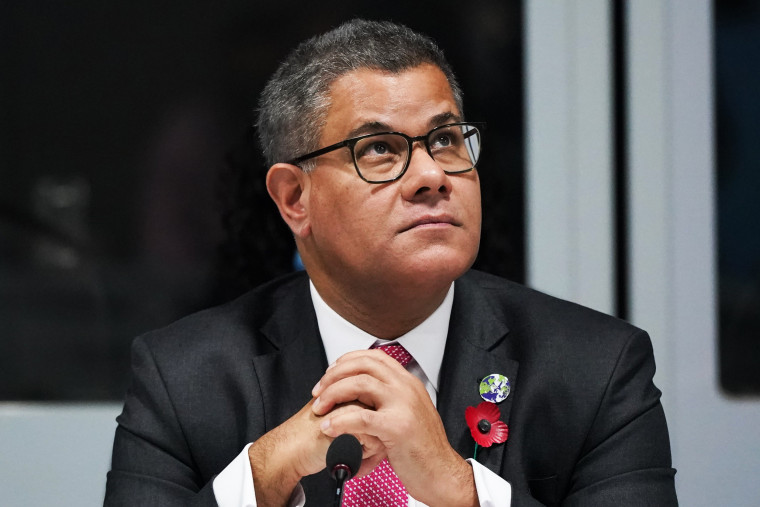With just one day to go in a global summit that has been called the "the world’s last best chance" to avert the climate crisis, United Nations officials didn't mince words about just how much work remains as the meeting heads into its final frenzied hours.
Speaking Thursday at the United Nations Climate Change Conference in Glasgow, Scotland, U.N. Secretary-General António Guterres said countries have significant ground to cover in negotiating a global plan to tackle the climate emergency.
"Governments need to pick up the pace and show the necessary ambition on mitigation, adaptation and finance in a balanced way," he said. "We cannot settle for the lowest common denominator. We know what must be done."
Guterres said progress has been made at this year's summit, known as the 26th "conference of parties," or COP26, but that efforts to slash global emissions and phase out fossil fuels have not gone far enough.
"Promises ring hollow when the fossil fuel industry still receives trillions in subsidies as measured by the [International Monetary Fund]," he said. "Or when countries are still building coal plants. Or when carbon is still without a price, distorting markets and investor decisions."
Alok Sharma, president of COP26, had even stronger words Thursday for the meeting's delegates, who are racing to finalize agreements overnight and into the conference's waning hours.
"Time is running out," he said, adding that there is "still a lot more work to be done."
The COP26 summit is seen as crucial to keeping alive the Paris Agreement’s goal of limiting warming to below 1.5 degrees Celsius, which scientists have said is necessary to avert the most devastating impacts of climate change.
Studies have shown that staying below the 1.5 degrees Celsius threshold will require reducing global emissions by 45 percent by 2030. But a recent analysis by the U.N. Environment Programme warned that existing national climate pledges still put the world on track for 2.7 degrees Celsius of warming by the end of the century.
A COP26 draft agreement was released Wednesday that outlined the need for countries to phase out coal and fossil fuel subsidies and called on rich countries to "urgently scale up their provision of climate finance" to help developing nations that are disproportionately affected by climate change.
The draft, which was updated Thursday, also urged countries to revisit and strengthen their pledges to reduce emissions next year.
Representatives from nearly 200 countries are now in the process of preparing a final agreement, which traditionally requires sign-off from all parties.
Though COP26 is scheduled to wrap up Friday, it's not uncommon for proceedings to run long. Though both Guterres and Sharma are pressuring governments to pick up the pace, Sharma said Thursday that a number of issues remain unresolved, including finance for developing nations and discussions around carbon markets.
"We are not there yet on the most critical issues," Sharma said. "We still have a monumental challenge ahead of us."

